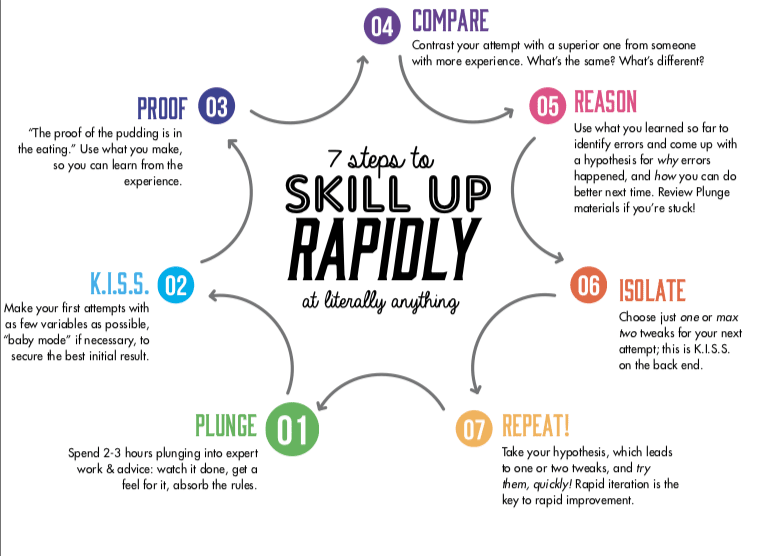“Do you know a good CRM?”
Our new handyman had just asked what we did for a living and I gave him the simplest answer: “time tracking software for consultants, lawyers, etc.” And that’s what spurred him to ask me The Question.
And believe me, it deserves those capital letters. At least to me.
I didn’t reply right away, just gaped in surprise at this overlap between two spheres of my life, so undeterred, he continueds:
“Not for sales. But after sales. Tracking before and after photos, and costs so I can look them up later… mobile interface…” (here he waved his ruggedized iPad) “…testimonials…”
I couldn’t believe it! The convergence!
Now the context you need for this conversation is that I hate CRMs with a passion. I hate CRMs because I love the idea of Customer Relationship Management, but all the CRMs I’ve ever seen have had their relationship-managing features hijacked by sales pipelines. Closing a sale is indeed a kind of relationship management, but it’s really lead management.
If, like me and my handyman, you actually want to stay on top of the people who’ve already paid you, you’re SOL.
This makes me extremely caremad. Drunken-rant-at-conference-afterparties level of caremad.
But this story isn’t about CRM design. (Although I might -rant- write that one later.)
This story is about how (not) to come up with ideas for your software business.
Because, in a traditional startup fairy tale, I would’ve been inspired by this real-life problem elicitation conversion and run off and built a CRM.
And because after this interaction, I tweeted:
oh, handyman asked if we knew any CRM software that was actually about Managing Customer Relationships and not just sales pipeline. i almost told him “omfg no and i ragetweet about this every 6 months” but restrained myself
And like clockwork, dudes (it’s always dudes!) showed up in my mentions:
ONE: I’d be interested in finding out more about why they’re not fulfilling the customer relationship side. Feel free to vent directly to me
TWO: What would it do?
THREE: What would actual CRM software do in a perfect world?
ARGH!
People do this to me every time I rant about bad software — and I rant about bad software a lot. So I see a lot of guys out there champing at the bit to fail. And hey, my other job is helping developers not fail at business, so…
Let’s break it down, shall we?
This, right here, is the worst way to come up with an idea for software business.
First of all, this is not a customer interview. It’s a random fly-by of “ooh, a problem!” — and nobody associates “random” with “success,” and for good reason.
Secondly, I (the putative customer) feel like I’m being swarmed by a flock of demented seagulls. Your goal as a founder should be to make your customers feel understood, supported, and respected. Not pecked to death like a discarded pizza crust.
Thirdly, these particular seagulls are expecting me — again, the putative customer — to put forth the emotional and intellectual labor to turn my problem into a format that they can use for their gain. The self-centeredness is… whew!!
When I have specifically called this out, these same seagulls inevitably reply,
“Excuse me? I’m trying to solve your problem,,,”
But I have absolutely zero confidence that anyone who replies hungrily to a comment like mine will actually do any of the work, because…
Lastly, seagulls are dilettantes and don’t really care about “solving my problem” (or they’d have searched my aforementioned backlog of ragetweets at the minimum). This is the flipside of the first problem, randomness: lack of investment.
A ‘problem’ is a terrible thing to build a business on.
I get that it’s alluring. Here you are, like the heroic founders of yore, soaring along happily in your daily life and suddenly, BOOM! You spot a tasty-looking PROBLEM. Free food!! Just lying there on the ground, ripe for the picking.
“I need a way to sell my Pez dispenser collection to a wider audience,” someone says.
“I’ll invent eBay!” you cry.
Montage. Eye of the Tiger. Riches ensue.
The thing is… those heroic tales are myths. Which is a diplomatic way of saying lies.
Which is why I’ve known more than one person who:
- noticed that their hair salon did all their bookings in an actual paper book, like some kind of Dark Ages shit?? and,
- having spotted this Problem, decided to build Better Scheduling for Salons, and then,
- having burned many months — even years! — of their lives on this single pizza crust of insight, failed because, as it turns out, salons don’t really care and also, btw, don’t buy software
For real. This exact ‘problem.’ This exact outcome. More than one person. I ranted about this idea before, and got an email from somebody who’d done it, and then a year or so later, someone else came up to me at a conference and said, “I, uh, built a booking app for salons.”
Guys.
GUYS.
It broke my heart.
It also wasted a lot of time and creative energy, dispirited the would-be founders, and annoyed a lot of otherwise happy salon owners.
Result: Fat lotta nothing.
So if Pizza Crust Problems aren’t a reasonable basis for a solid SaaS business, what is?
You don’t just need the whole slice… you need the whole pie.
You need to deeply understand not just a problem, but the people who have it.
Because there are infinite ways for a fledgling business to fail, but there’s only one way to succeed:
Make enough sales to cover costs.
Boring? Unsexy? Not even the slightest whiff of pepperoni? Maybe. But… basic math can’t be denied: If your costs exceed your revenue long enough, you fail.
That means that the most important question for any new potential product is:
Will people buy it in sufficient quantities for profit?
The What? doesn’t matter, really.
The most crucial ingredients are Who? and How Much?
That’s why I advise my students, friends, blog readers, and literally anyone who will listen to start with the audience.
1. Pick an audience that buys things. One you can study, reach, and persuade.
2. Then figure out what they need and want.
In that order.
It’s better than inspiration that fizzles out.
It’s better than wasting months of your life Solving a Problem only to find out nobody cares.
It’s better than fighting over scraps.
It’s a little more work up front — but it’s a helluva lot more rewarding.
If you’re tired of great ideas that don’t work out, and ready to build a business that lasts, I’m here to help.
You’ll find tons of how-to articles right here on Stacking the Bricks.
If you’re new to this site, or feel like you need a refresher on the basics, I recommend you start here: How do you make a product people want to buy?

There's more where that came from
We email every Wednesday with the latest insights from our business, our students, and our research. Drop your email in the box below and we'll send new stuff straight to your inbox!
Absolutely no spam, ever. We respect your email privacy. Unsubscribe anytime. Huzzah!

